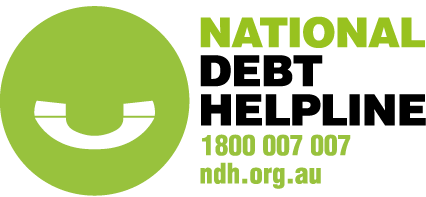Many people experiencing economic abuse end up in debt either because the abuser has created debts in their name, or the abuser's behaviour has led to a reliance on debt to pay for necessities. If you are struggling with debt for any reason, help is available.
When faced with unmanageable debts, it can be tempting to ignore the problem. However, your first step to feeling less stressed about money is to take action.
If you don't know where to start, talk to a financial counsellor or call the organisation/s you owe money to and ask to speak with their 'hardship team'. Letting the credit provider know you are experiencing 'financial hardship' affords you certain rights under the National Credit Act, such as a different repayment arrangement.
If you speak with a 'hardship team', they are likely to ask you questions about your existing expenses and income, so it is a good idea to have as much of this information with you as possible when you call. If you don't have this information because it has been kept from you, don't let this put you off calling, and let the credit provider know this is your situation.
If you suspect someone has put debts in your name without your permission, get a free copy of your credit report and look for anything unfamiliar. Your credit report includes the amount of money you've borrowed and credit applications you've made (or have been made in your name). You can read more about Credit Reporting here or at CreditSmart.
Unpaid debts and late payment of debts and bills will impact your credit rating, which is another reason to address the problem as quickly as possible.
If you have a Family Tax Benefit Debt with Centrelink, the National Council for Single Mothers and Their Children has information on how to challenge this.
If things have become so bad you are considering bankruptcy, read more about your bankruptcy options.
 Talk to a financial counsellor.
Talk to a financial counsellor.
 Free debt relief service for people who are unable to repay their debts.
Free debt relief service for people who are unable to repay their debts.
 Read the fact sheet on family breakdown and debt.
Read the fact sheet on family breakdown and debt.

